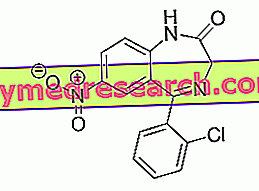Definition
Chlamydia is a bacterial infection with Chlamydia trachomatis, transmitted through any form of unprotected sexual contact (vaginal, oral, anal) or via maternal-fetal route. Chlamydia is one of the most frequent sexually transmitted infections together with gonorrhea and trichomoniasis.
Causes
As the name of the disease heralds, chlamydia is caused by a gram negative microorganism, Chlamydia trachomatis . Among the major risk factors, we note: frequent change of sexual partner, aged between 16 and 24, unprotected sexual relations, exclusive use of oral contraceptives.
Symptoms
In 75% of women with chlamydia, the infection runs asymptomatically; in other cases - and in both sexes - the disease involves pain during urination, pain during intercourse, pain in the lower abdomen and proctitis. Furthermore, exclusively in women, chlamydia can degenerate into vaginal discharge, abnormal and bloody (outside the cycle) and cervicitis, while in humans the infection can also involve testicular swelling, urethral leakage and urethral itching.
Information on Chlamydia - Chlamydia Drugs is not intended to replace the direct relationship between health professional and patient. Always consult your doctor and / or specialist before taking Chlamydia - Chlamydia Drugs.
drugs
Although Chlamydia infection is asymptomatic in most cases, it is still important to treat it promptly, in order to avoid the degeneration of the disease with consequent serious damage to the reproductive system (pelvic inflammatory disease, salpingitis, permanent sterility): in this regard, it is advisable to undergo check-ups if you have unprotected sex with people at risk.
Macrolides
- Azithromycin (eg Azithromycin, Zitrobiotic, Rezan, Azitrocin): the administration of this drug is certainly the most widespread treatment against Chlamydia infections. Generally, only one dose of active (1 gram, tablet) is required for patient healing.
- Erythromycin (eg Erythrocin, Erythro L, Lauromycin): in the case of moderate to medium-sized infection, we recommend taking 250-500 mg of active every 6 hours. For the treatment of severe chlamydial infection, it is recommended to administer 1-4 g per day intravenously in divided doses every 6 hours or by continuous infusion.
penicillins
- Amoxicillin (eg. Amoxicillin, Amoxil and Trimox, Zimox, Augmentin ): it is recommended to administer 500 mg of oral medication, 3 times a day for 7 consecutive days. The drug can also be taken during pregnancy, as an alternative to macrolides. Consult your doctor.
Tetracycline
- Doxycycline (eg Doxicicl, Periostat, Miraclin, Bassado): for urethral / endocervical or rectal Chlamydia infections, it is recommended to take 100 mg orally twice a day for 7 days. When patient compliance is questionable, azithromycin is preferred to doxycycline. Alternatively, take 200 mg of active per day for 15-21 days. During therapy it is not recommended to take dairy products, to avoid weakening the antibiotic .
- Tetracycline (eg Tetrac C, Pensulvit, Ambramycin) is recommended to take 500 mg orally 4 times a day in the case of uncomplicated urethral chlamydia, for at least a week.
Quinolones
- Ofloxacin (eg. Exocin, Oflocin): this drug, belonging to the second-generation class of quinolones, is effective against Chlamydia infections when taken at a dose of 300 mg orally per day, for a week.
- Levofloxacin (eg Levofloxacin, Tavanic, Aranda, Fovex): administration of 500 mg of active per os is recommended once a day for at least seven days. However, treatment with azithromycin is preferable.
sulfa
- Sulfisoxazole: in case of infantile Chlamydia infection, it is recommended to administer 100 mg / kg per day, to be taken orally in divided doses every 6 hours. Do not exceed 2 g per day. The dose is indicated for children aged two months or more who have been infected by the mother during childbirth.
NB in case of Chlamydia infection, it is necessary that the partner with whom you have had sexual contact also undergo antibiotic treatment, in order to avoid relapses.



